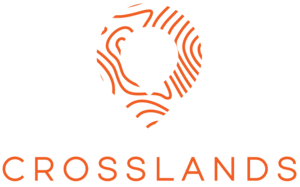|
Course 2 :
Greek Reading 1
|
Take Course
Stand-Alone Course ($199.00 USD)
|
About this Course
In Greek Reading 1 you will learn Greek grammar and vocabulary as you translate chapters 1–3 of the Gospel of John. Accessing our online course at your own convenience, you will read text-based resources, watch instructional videos, listen to audio recordings, use our cutting-edge vocabulary building application, and engage our extensive assessment tools. Using this combination of learning methods, you will master Level 1 grammatical concepts, learn all vocabulary that appears 100 times or more in the Greek New Testament, and take an important step toward being able to confidently read the New Testament as it was originally written.
This course is suitable for beginners who have completed the Greek First Steps course as well as seasoned students who are looking to refresh their knowledge of Greek.
Example Timeframe: 8–10 hours per week in order to complete in 16 weeks
Course Overview
You will learn vocabulary words that appear 100 times or more in the Greek New Testament (about 200 words total) as well as key information about the following grammar topics:
-
Greek case system
-
Nominative case
-
Predicate nominative
-
Genitive case
-
Dative case
-
Accusative case
-
Vocative case
-
Gender
-
First and second declensions
-
Adjectives
-
Article
-
Prepositions
-
Conjunctions
-
Adverbs
-
Verbal tense and aspect
-
Present tense/aspect
-
Present active indicative forms
-
Imperfect tense
-
Imperfect active indicative forms
-
Active voice
-
Indicative mood
-
Person and number
-
Εἰμί: Basic usage and forms
-
Present active infinitive
|
Course 3 :
Greek Reading 2
|
Take Course
Stand-Alone Course ($199.00 USD)
|
About this Course
In Greek Reading 2 you will continue to learn Greek grammar and vocabulary by translating the Sermon on the Mount (Matthew 5–7). Accessing our online course at your own convenience, you will read text-based resources, watch instructional videos, listen to audio recordings, use our cutting-edge vocabulary building application, and engage our extensive assessment tools. Using this combination of learning methods, you will master Level 2 grammatical concepts and review Level 1 grammatical concepts. Upon completion of the course, you will also know all vocabulary that appears 50 times or more in the Greek New Testament. Your guided reading of the Sermon on the Mount will deepen your understanding of the Greek language and increase your confidence to read the Greek New Testament.
This course is suitable for you if you have completed Greek Reading 1 or if you have previously studied Greek and are looking to refresh your knowledge.
Example Timeframe: 8–10 hours per week in order to complete in 16 weeks
Course Overview
You will learn vocabulary words that appear 50–99 times in the Greek New Testament (about 125 words total), review the content of Level 1, and learn key information about the following grammar topics:
-
Nominal uses of genitive and dative cases
-
Uses of Αὐτός
-
Personal pronouns
-
Possessive pronouns
-
Demonstrative pronouns
-
Present middle/passive indicative forms
-
Imperfect middle/passive indicative forms
-
Aorist tense/aspect
-
First aorist active indicative forms
-
Future tense/aspect
-
Future active indicative forms
-
Future middle indicative forms
-
Future forms with contract verbs
-
Middle voice
-
Passive voice
-
Imperative mood
-
Commands and prohibitions
-
Present active imperative forms
-
Present middle/passive imperative forms
-
First aorist active imperative forms
-
First aorist middle imperative forms
-
Subjunctive mood
-
Contract verbs
-
Verbal roots and stems
-
Square of stops
-
Aorist and future forms with labials, palatals, and dentals
-
Present middle/passive infinitive form
-
First aorist middle infinitive form
-
Participles introduction
|
Course 4 :
Greek Reading 3
|
Take Course
Stand-Alone Course ($199.00 USD)
|
About this Course
In Greek Reading 3 you will continue to learn Greek grammar and vocabulary by translating all of 1 Thessalonians. Accessing our online course at your own convenience, you will read text-based resources, watch instructional videos, listen to audio recordings, use our cutting-edge vocabulary building application, and engage our extensive assessment tools. Using this combination of learning methods, you will master Level 3 grammatical concepts and review Level 1–2 grammatical concepts. Upon completion of the course, you will also know all vocabulary that appears 25 times or more in the Greek New Testament. Your guided reading of 1 Thessalonians will deepen your understanding of the Greek language and increase your confidence to read the Greek New Testament.
This course is suitable for you if you have completed Greek Reading 1 and Greek Reading 2, or if you have previously studied Greek at an intermediate level and are looking to refresh your knowledge.
Example Timeframe: 8–10 hours per week in order to complete in 16 weeks
Course Overview
You will learn vocabulary words that appear 25–50 times in the Greek New Testament (about 125 words total), review the content of Level 1 and Level 2, and learn key information about the following grammar topics:
-
Stative Verbs
-
Perfect Indicative Forms
-
Second Perfect Indicative Forms
-
Infinitive with Prepositions
-
Stative Infinitives (with Infinitive Forms Review)
-
Subjunctive Forms
-
Participles: Substantival and Adjectival Uses
-
Participles: Adverbial Uses
-
Participles: Special Uses (e.g., Genitive Absolutes, Periphrastics)
-
Participle Forms Overview
-
Imperfective Participle Forms
-
Perfective Participle Forms
-
Optative Mood
-
Liquid Verbs
-
Changes in Aspect Stems
-
Μι Verbs
-
Third Declension Forms
-
First and Second Declension Irregularities
-
Genitive Case: Adjectival and Adverbial Uses
-
Dative Case: Adverbial Uses
-
Accusative Case: Advanced Uses
-
Relative Pronouns
-
Reflexive Pronouns
-
Indefinite and Interrogative Pronouns
-
Reciprocal Pronouns
-
Conditional Sentences
-
Special Uses of the Article
|
Course 5 :
Advanced Greek: Analyzing the Narrative Discourse of Mark 1-8
|
Take Course
Stand-Alone Course ($199.00 USD)
|
About this Course
In Analyzing the Narrative Discourse of Mark 1–8 you will learn about discourse features of biblical narrative. Some concepts taught are the discourse-level function of Greek conjunctions, background and foreground analysis, principles of Greek word order, and analyzing structural boundaries.
This course is suitable for you if you have completed Greek Reading 1, 2 and 3 or if you have previously studied Greek at an advanced level and are looking to refresh your knowledge.
Example Timeframe: 8 hours per week in order to complete in 16 weeks
Course Overview
You will learn vocabulary words that appear 24–29 times in the Greek New Testament (about 100 words total), review the content of Greek Reading 1–3. The titles of articles within this course are as follows:
-
Morpology, Syntax, and Discourse Grammar
-
Discourse Segmenting with Δε
-
The Function of Γάρ: Signaling Explanatory Information
-
And What? Understanding Και
-
Understanding Ἀλλά: Signaling a Correction
-
Introduction to Background and Foreground
-
Default and Marked Constructions
-
Aspect and Background/Foreground
-
Background and Foreground in Subordinate Clauses
-
Marked Verbal Forms and Background/Foreground
-
Introduction to the Historical Present
-
Background and Foreground Review
-
Participants, Location, and the Historical Present
-
Not X Except Y: The Function of Εἰ μή and Έὰν μή
-
Mark 3:28–35: A Text in Review
-
Introduction to Greek Word Order
-
Referential Points of Departure
-
Situational Points of Departure
-
A Review of Constituent Order in Mark 4:32–34
-
Mark 4:35–41: A Text in Review
-
Introduction to Focus Constructions
-
Narrow Focus
-
Clause Focus
-
Focus Constructions in Mark 5:27–34
-
Mark 5:35–43: A Text in Review
-
Making Sense of Multiple Preverbal Constituents
-
Focus Constructions Review
-
Postverbal Constituent Order
-
Mark 6:53–56: A Text in Review
-
Reviewing Background and Foreground
-
Reviewing Connectives
-
Reviewing Focus Constructions
-
Reviewing Points of Departure
-
Mark 7:31–37: A Text in Review
-
Introduction to Boundary Features
-
Deictic Centers and Boundary Levels
-
Genitive Absolutes
-
Mark 8:31–38: A Text in Review
|
Certificate : Obtain My Certificate of Completion
|

|
About the Certificate of Completion
When you have completed this learning track on BibleMesh.com, you will need to enroll here to apply for your certificate of completion. This enrollment will be activated when you have successfully finished all the courses in this track.





